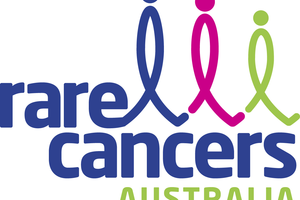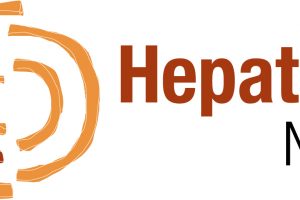Tribune Report: Multicultural Media COVID-19 Online Conference held on Wednesday 7 June 2023 with Chief Health Officer Dr Kerry Chant who provided COVID-19, influenza, meningococcal and public health updates.
COVID-19
- NSW is continuing to experience elevated levels of transmission of respiratory viral infections, including COVID-19, influenza and respiratory syncytial virus (RSV).
- Everyone in NSW is being urged to ensure they are up to date with their recommended influenza and COVID-19 vaccinations to protect themselves from serious illness in the lead up to winter.
- There is plenty of stock of COVID-19 and influenza vaccines available at pharmacies and GPs, so please book in today.
- COVID-19 PCR testing in NSW has recently changed. Most people who have COVID-19 symptoms can use a rapid antigen test (RAT).
- Free RATs are now accessible to the community via some local councils, ServiceNSW and NSW Health services.
- Find a free RAT near you on the NSW Government website.
- If your doctor recommends a COVID-19 PCR test, they will give you a pathology referral form for a free COVID-19 PCR test.
- If you are at higher risk of severe illness from COVID-19, contact your doctor for testing advice. If you can’t contact your doctor, call healthdirect on 1800 022 222 or use the online Service Finder to find a GP near you.
- If English is not your main language and you need an interpreter, call TIS National on 131 450 and ask to be transferred to healthdirect on 1800 022 222
- If your doctor recommends a COVID-19 PCR test, they will give you a pathology referral form for a free COVID-19 PCR test.
- COVID-19 is circulating widely in the community. To protect yourself and your loved ones:
- Stay up to date with your vaccinations. For people considered higher risk of severe illness from COVID-19, a 2023 COVID-19 booster is recommended if your last COVID-19 vaccine dose or confirmed infection (whichever is the most recent) was 6 months ago or more.
- Stay home if you have cold or flu symptoms and get tested.
- Wear a mask in crowded, indoor places.
- Talk with your doctor now if you are at higher risk of severe illness. You may be eligible for antiviral medicines.
- Don’t visit people who are at higher risk of severe illness if you have symptoms or COVID-19.
- Answers to frequently asked questions about COVID-19 antiviral medicines:
https://www.nsw.gov.au/covid-19/management/antivirals
- COVID-19 NSW Health webpage
https://www.health.nsw.gov.au/Infectious/covid-19/Pages/default.aspx
- COVID-19 NSW Health webpage with resources for multicultural communities
- COVID-19 NSW Health webpage: COVID-19 resource language list
https://www.health.nsw.gov.au/Infectious/covid-19/Pages/languages.aspx
Influenza (Flu)
- A reminder for all people aged 6 months and above to get their yearly influenza (flu) vaccine.
- Some people are eligible for a FREE flu shot because they are at higher risk of severe illness from the flu. This includes:
- children from 6 months to under 5 years of age
- people with serious health conditions (including severe asthma, diabetes, cancer, immune disorders, obesity, kidney, heart, lung or liver disease)
- pregnant women
- Aboriginal people from 6 months of age
- people who are 65 years of age and over.
- According to the last NSW Respiratory Surveillance report, rates of influenza notifications have increased mainly among those aged 0 to 4 and 5 to 16, possibly due to greater social mixing with schools and childcare. This is an important reminder to ensure your young children are vaccinated against flu, and to keep them home if they are unwell, to help your children and others stay well this winter.
- Pharmacists can administer flu shots to children aged 5 and over. Parents with children aged under 5 should see their doctor.
-
- Influenza is serious. Get your flu shot today.
NSW Health website – with resources and pages in multiple languages
Link: https://www.health.nsw.gov.au/Infectious/Influenza/Pages/default.aspx
-
- Influenza resources in community languages
News social media tile in 62 languages – Influenza is serious
Link: https://www.health.nsw.gov.au/Infectious/Influenza/Pages/translated-resources.aspx#section4
Meningococcal disease
-
- NSW Health is urging the community to be on alert for symptoms of meningococcal disease and act immediately if they appear after the notification of a death and recent cases.
- See link to more information on meningococcal disease on the NSW Health website: https://www.health.nsw.gov.au/Infectious/meningococcal/Pages/default.aspx
- Meningococcal disease is a rare, but serious and sometimes fatal disease, with babies, toddlers, adolescents and young adults at highest risk.
- While vaccination of these age groups has reduced the number of infections each year, the vaccines do not protect against all strains of meningococcal bacteria and people of all ages can be infected.
- Under the National Immunisation Program, meningococcal ACWY (Men ACWY) vaccine is provided free for babies at 12 months, adolescents, and people of all ages with certain medical conditions. In NSW, the adolescent dose is delivered through the school vaccination program in Year 10.
- A meningococcal B vaccine is available to children from 6 weeks of age to reduce the risk of infection from this strain of the disease. Aboriginal infants and people with certain medical conditions are eligible for free access to this vaccine under the National Immunisation Program.
- Knowing the symptoms could help prevent premature death or life-long disability. They include:
- sudden onset of fever
- headache
- neck stiffness
- tiredness
- joint or limb pain
- dislike of bright lights
- nausea and vomiting
- high-pitched crying in babies
- a rash of red-purple spots or bruises, which may appear after the other symptoms or late in the disease progression
- If symptoms rapidly worsen call Triple Zero (000) or go straight to your nearest emergency department, do not delay.
- See below links to multilingual information on meningococcal disease by NSW Health on the MHCS website:
- DOH – 7150 Meningococcal Disease (Arabic)
- DOH – 7150 Meningococcal Disease (Chinese Traditional)
- DOH – 7150 Meningococcal Disease (English)
- DOH – 7150 Meningococcal Disease (Farsi)
- DOH – 7150 Meningococcal Disease (Indonesian)
- DOH – 7150 Meningococcal Disease (Khmer)
- DOH – 7150 Meningococcal Disease (Korean)
- DOH – 7150 Meningococcal Disease (Lao)
- DOH – 7150 Meningococcal Disease (Punjabi)
- DOH – 7150 Meningococcal Disease (Macedonian)
- DOH – 7150 Meningococcal Disease (Serbian)
- DOH – 7150 Meningococcal Disease (Spanish)
- DOH – 7150 Meningococcal Disease (Thai)
- DOH – 7150 Meningococcal Disease (Turkish)
- DOH – 7150 Meningococcal Disease (Vietnamese)




